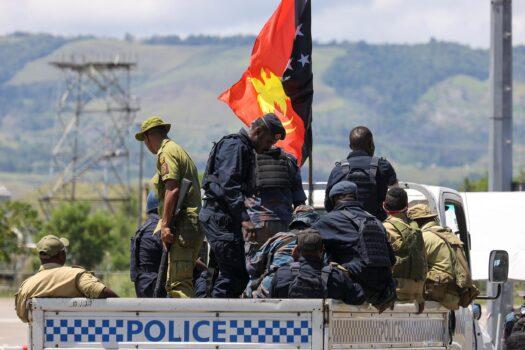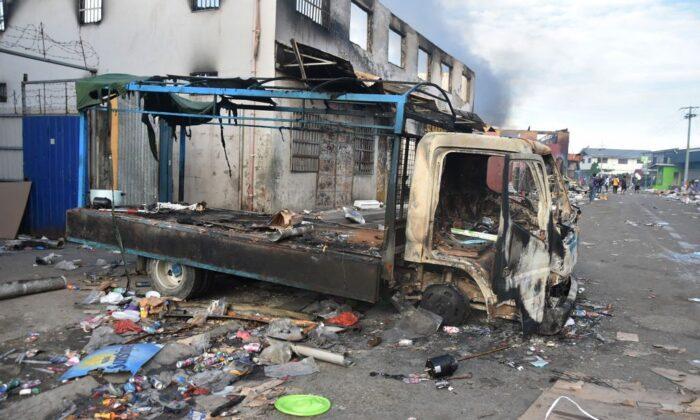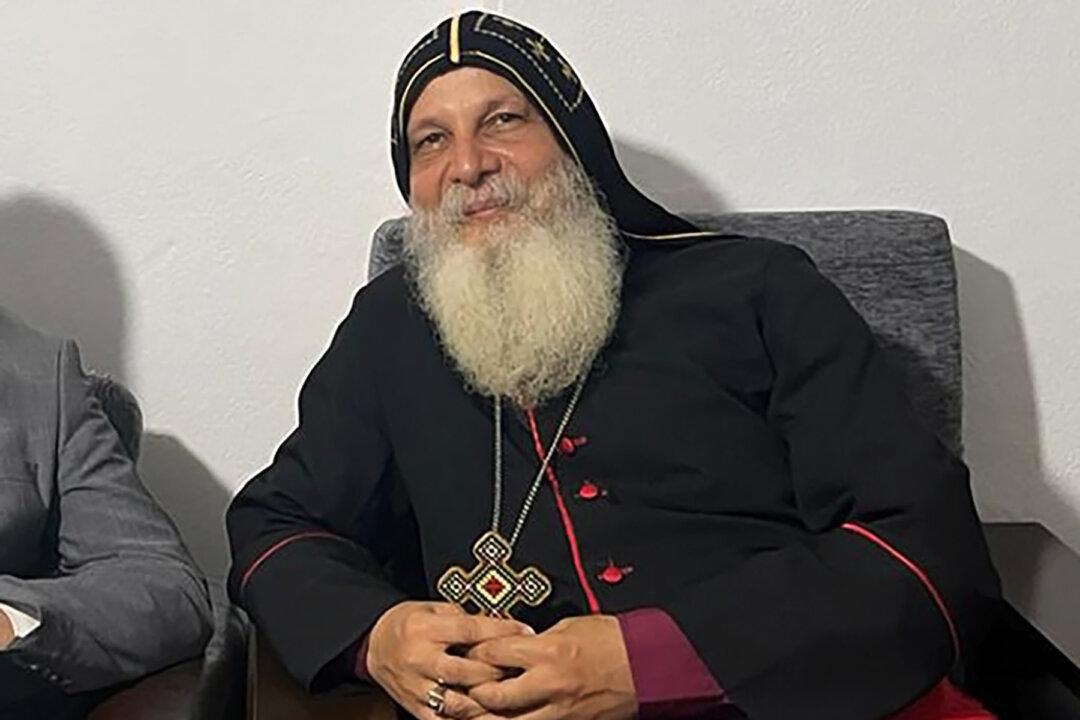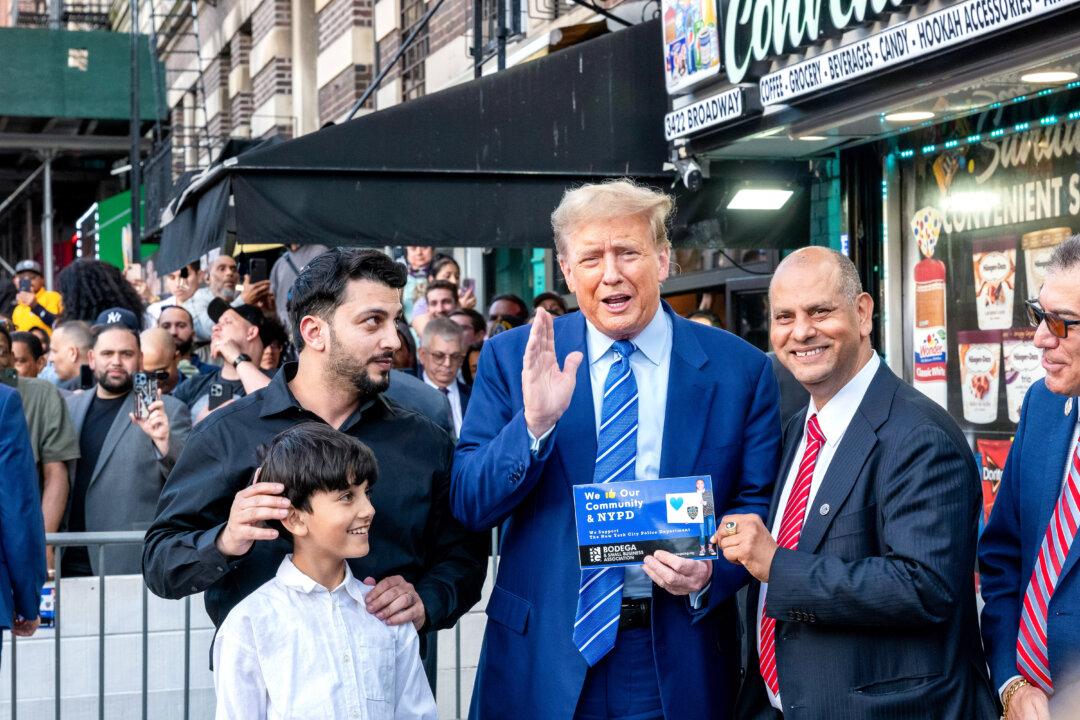Australia and New Zealand should adopt a hands-off approach to the Solomon Islands and leave embattled Prime Minister Manasseh Sogavare to deal with Beijing-linked bribery allegations and deep dissatisfaction with his rule, according to a South Pacific expert.
Cleo Paskal, an associate fellow of the Asia-Pacific Programme at Chatham House, said last November’s intervention from a coalition of Australian, New Zealand, Fijian, and Papua New Guinean forces to the Solomons provided breathing space to the pro-Beijing leader, who she said, was being pushed to stand down.
“Sogavare was losing his grip on power. His MPs were defecting, the police had gone to him to defuse the (protest) situation and recommended that he should consider stepping aside—not due to threats from the demonstrators—but just because he is incredibly unpopular across the country,” she told The Epoch Times.
“The announcement that Australia was sending troops saved him. He could then turn to MPs that were looking at defecting and say, ‘Look, both China and Australia back me. So, are you really going to go up against me?’” she added.

Prime Minister Scott Morrison of Australia has maintained that the intervention of police and military was designed to restore stability to the island, and not a move to influence the democratic process.
“It’s not for us to be interfering in how they resolve those issues. We are just simply there as a good family member to try and provide a stable and safe environment for the issues that are there in the Solomon Islands to be peacefully worked through,” Morrison told reporters on Nov. 28.
Sogavare had activated the Bilateral Security Agreement 2017, which allows the government to call on Australian authorities to provide support to the Solomon Islands’ police force.
The protests were a flashpoint for several issues surrounding Sogavare’s governance including dissatisfaction with his handling of service delivery, corruption, and his links to Beijing.
The Chinese Communist Party (CCP) looms large over Sogavare’s tenure as prime minister, according to Paskal.
“Taiwan used to give Constituency Development Funds, which are chunks of money to every MP in the Parliament—there are 50 MPs—and it was always controversial,” she said.
“But now what happened was the current pro-Beijing prime minister, gave chunks of money out of a CCP bank account, only to the 39 members of parliament who supported him,” she added. “So, it’s very, very overt.”

Opposition leader Matthew Wale said the fund’s supposed development motive was a mockery of “the people of this country.”
“The funds are purely political, used by the prime minister to maintain his office. And the fact that the funds are paid by a foreign power is an egregious breach of Solomon Islands’ sovereignty,” he said in Parliament.
“In fact, all three warfares are in play in the Solomons—psychological warfare, media warfare, and lawfare,” she said.
In short, they consist of psychological warfare aimed at demoralising an adversary; media warfare to shape and win the hearts of the public, and legal warfare to manipulate legal systems in favour of the Chinese regime.
“If an election is rigged in favour of a China-friendly candidate, then your recourse is the media and the judiciary—and those are two lawfare components,” Paskal said, noting there was a serious lack of proper media coverage and scrutiny of the Pacific nation.
“If the three warfares are in play, then it becomes a lot easier to de-democratise a democracy.”
Opposition leader Wale, in his address to Parliament during the no-confidence motion, accused the prime minister of “state capture”—the practice of introducing systemic corruption into a political system until it can no longer function for the public good.

The South Pacific has in recent years become a hotbed of geopolitical competition between democratic allies and Beijing, with both sides pushing for influence in the region.
Meanwhile, in 2019, Kiribati and Solomon Islands switched formal diplomatic ties from Taiwan to Beijing.
Paskal says, beyond enjoying patronage from Taiwan, Suidani himself was a “man of deep faith” and his opposition to the CCP runs much deeper.
“He and his government don’t want to work with the CCP because the regime is aggressively atheist, and they actively persecute people of faith.”






Friends Read Free